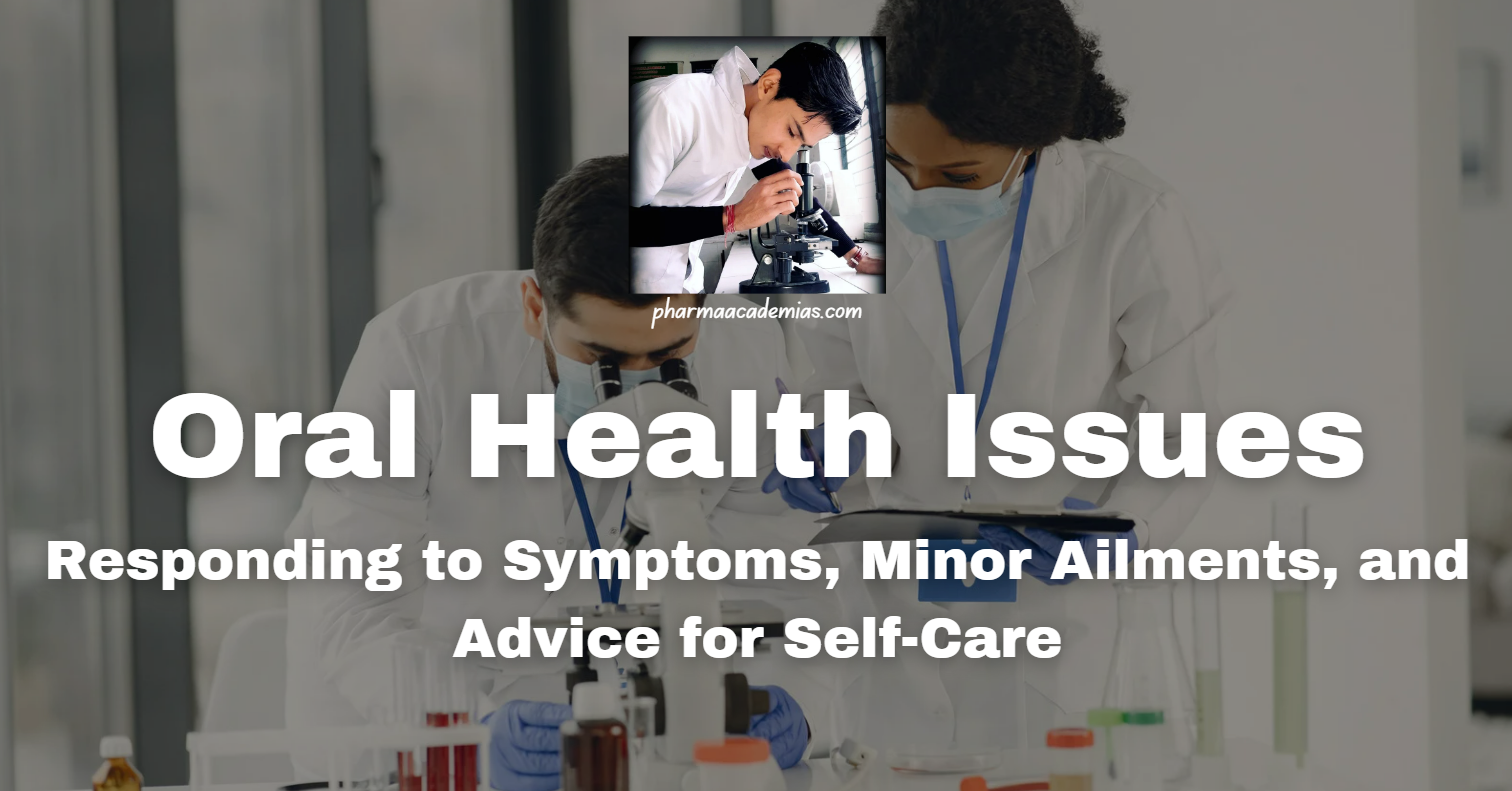Introduction:
Oral health issues such as mouth ulcers, dental pain, and gum swelling can cause discomfort and affect daily activities such as eating, speaking, and oral hygiene practices. While these conditions are often minor and temporary, they can indicate underlying dental problems or oral health concerns. Responding effectively to symptoms and practicing self-care measures can help alleviate discomfort, promote healing, and maintain oral health. This detailed note provides comprehensive guidance on responding to oral health issues, offering advice for self-care and when to seek dental or medical attention.
Understanding Oral Health Issues
1. Mouth Ulcers (Canker Sores): Mouth ulcers are painful, round or oval sores that develop on the mucous membranes of the mouth, including the inside of the cheeks, lips, tongue, or throat. They can be caused by various factors such as minor trauma, acidic or spicy foods, hormonal changes, stress, or underlying health conditions.
2. Dental Pain: Dental pain refers to discomfort or pain originating from the teeth or surrounding structures such as the gums or jaw. It can be caused by dental caries (cavities), dental abscesses, gum disease, tooth fractures, or dental procedures.
3. Gum Swelling (Gingival Swelling): Gum swelling refers to inflammation and enlargement of the gums, which may be localized or generalized. It can be caused by poor oral hygiene, gum disease (gingivitis or periodontitis), dental abscesses, trauma, hormonal changes, or systemic conditions.
Responding to Symptoms
1. Identify the Oral Health Issue: Recognize the characteristic symptoms and appearance of the oral health issue to determine the appropriate response and self-care measures.
2. Assess Severity: Evaluate the severity and extent of symptoms, considering factors such as pain intensity, size and location of ulcers, presence of pus or drainage, and impact on eating, speaking, or oral hygiene practices.
3. Identify Underlying Causes: Identify potential triggers or underlying factors contributing to the oral health issue, such as recent dental procedures, dietary habits, oral hygiene practices, or systemic health conditions.
Self-Care Measures
1. Maintain Good Oral Hygiene: Brush teeth gently with a soft-bristled toothbrush and fluoride toothpaste at least twice daily. Floss daily to remove plaque and food particles from between teeth and along the gumline. Rinse with an antimicrobial mouthwash to help reduce bacteria and inflammation in the mouth.
2. Manage Symptoms: For mouth ulcers, apply over-the-counter topical treatments such as oral numbing gels (e.g., benzocaine) or protective mouthwashes containing ingredients like chlorhexidine or hydrogen peroxide to alleviate pain and promote healing. For dental pain, use over-the-counter pain relievers such as ibuprofen (Advil, Motrin) or acetaminophen (Tylenol) to reduce pain and inflammation. Avoid applying aspirin directly to the tooth or gums, as it can cause tissue irritation. For gum swelling, gently massage the swollen gums with a clean finger or use a warm saltwater rinse (one-half to one teaspoon of salt dissolved in a glass of warm water) to help reduce inflammation and promote healing.
3. Dietary Modifications: Avoid acidic, spicy, or rough-textured foods that can irritate mouth ulcers or sensitive teeth and gums. Choose soft, bland foods that are easy to chew and swallow to minimize discomfort while eating.
4. Hydration: Drink plenty of water to stay hydrated and promote saliva production, which helps cleanse the mouth and protect against oral health issues.
5. Avoid Tobacco and Alcohol: Avoid tobacco products and limit alcohol consumption, as both can irritate oral tissues and exacerbate oral health issues.
6. Stress Management: Practice stress-reduction techniques such as deep breathing, meditation, or yoga to help manage stress, which can exacerbate oral health problems.
When to Seek Dental or Medical Attention
1. Persistent or Worsening Symptoms: If symptoms persist, worsen, or do not improve with self-care measures, consult a dentist or healthcare provider for further evaluation and treatment.
2. Severe Symptoms: Seek dental or medical attention for severe symptoms such as severe dental pain, fever, swelling that affects breathing or swallowing, or signs of infection (e.g., pus, drainage).
3. Chronic or Recurrent Oral Health Issues: If you experience chronic or recurrent oral health issues such as frequent mouth ulcers, persistent dental pain, or recurring gum swelling, consult a dentist for evaluation and management to identify underlying causes and prevent future episodes.
4. Dental Emergencies: Seek immediate dental attention for dental emergencies such as severe toothache, broken or knocked-out teeth, or traumatic injuries to the mouth or jaw.
Conclusion:
Responding to symptoms of oral health issues involves a combination of self-care measures, good oral hygiene practices, and lifestyle modifications to alleviate discomfort, promote healing, and maintain oral health. While many oral health issues can be managed effectively at home with self-care measures, it’s important to monitor symptoms closely and seek dental or medical attention if needed, especially for severe or persistent symptoms, dental emergencies, or chronic oral health conditions. Consulting a dentist or healthcare provider can help ensure proper diagnosis, treatment, and management of oral health issues for optimal oral health and well-being.


 Join Our Telegram Channel
Join Our Telegram Channel